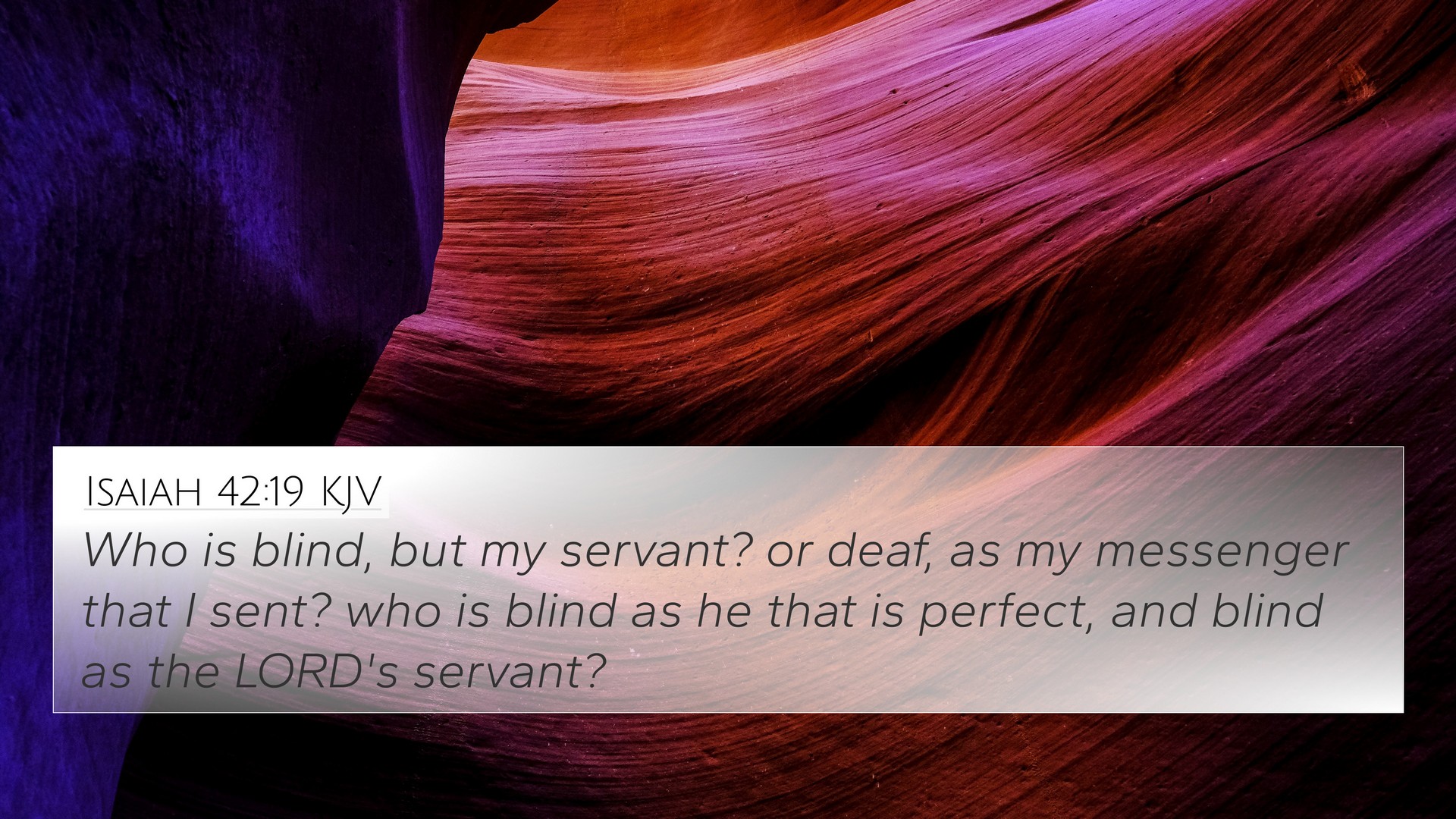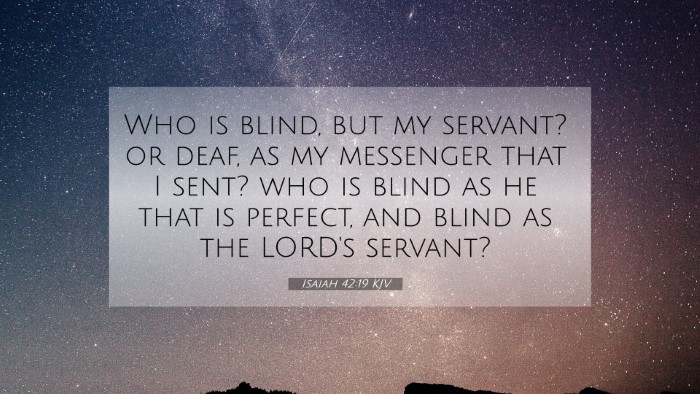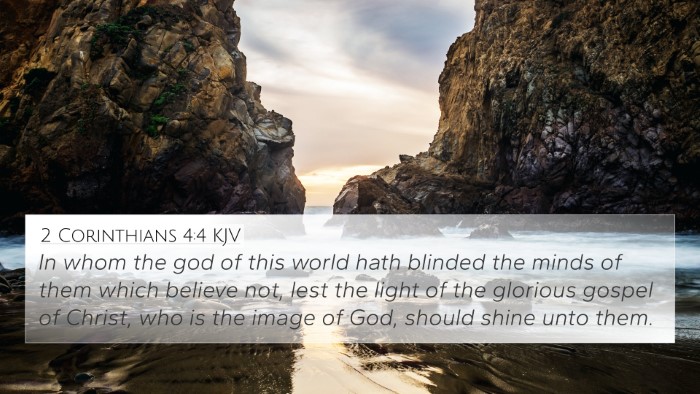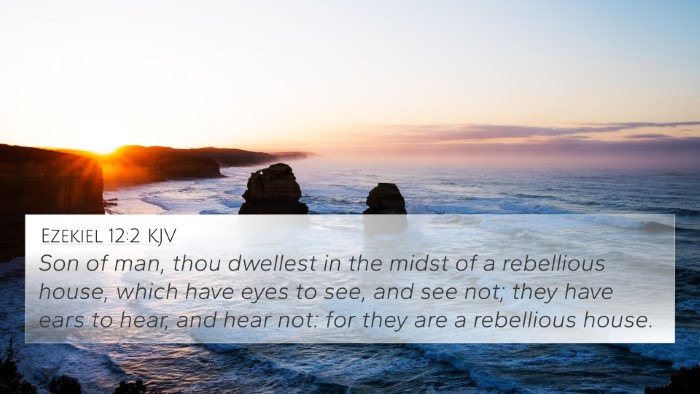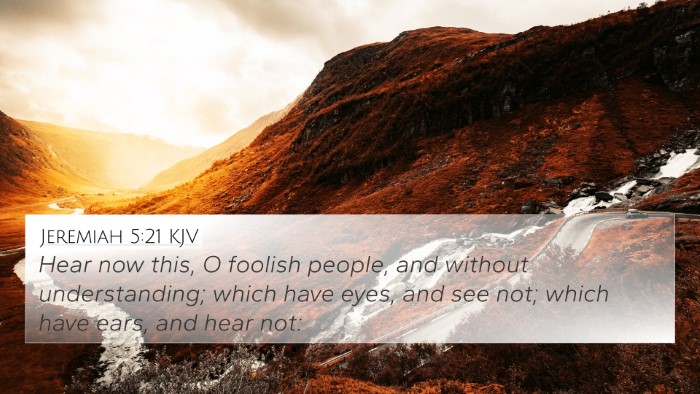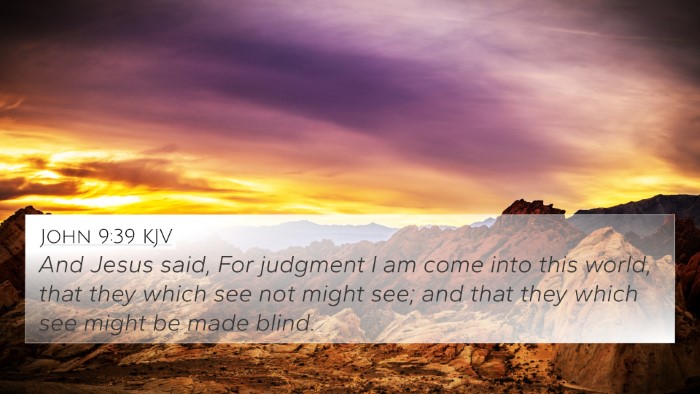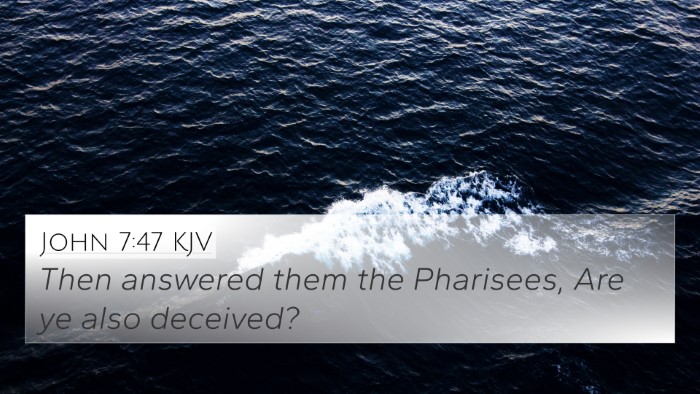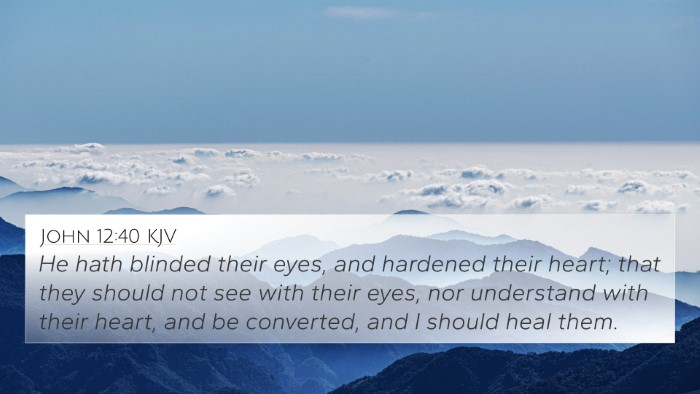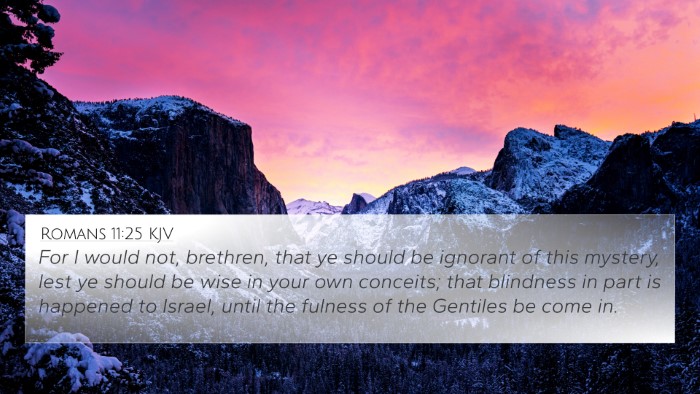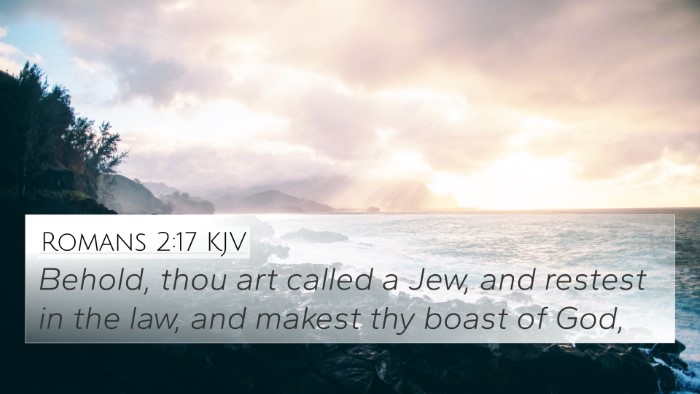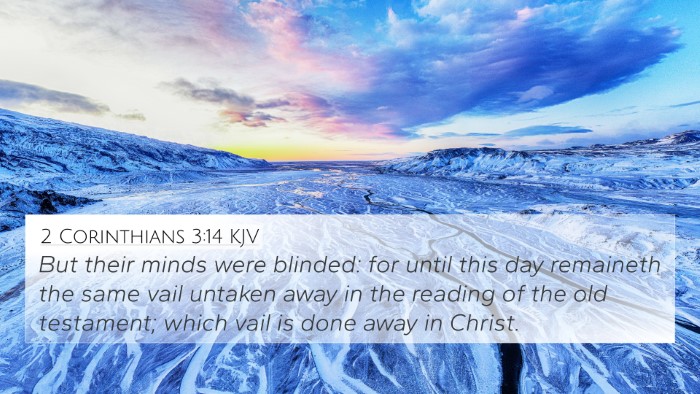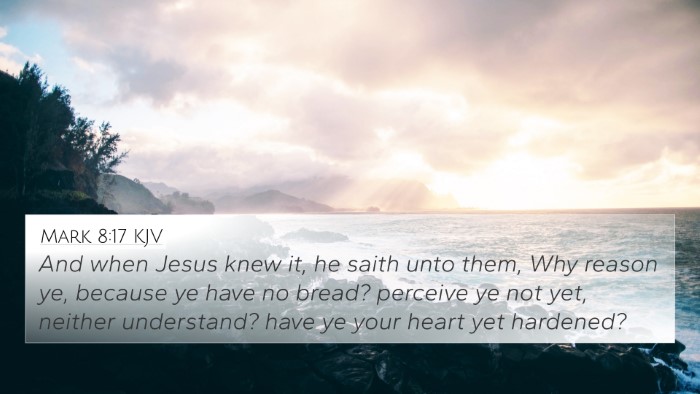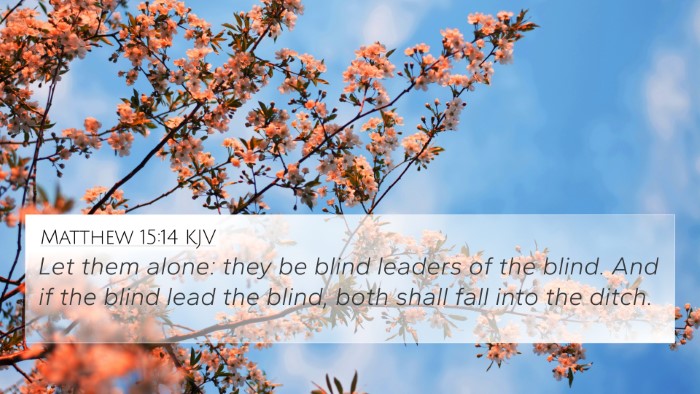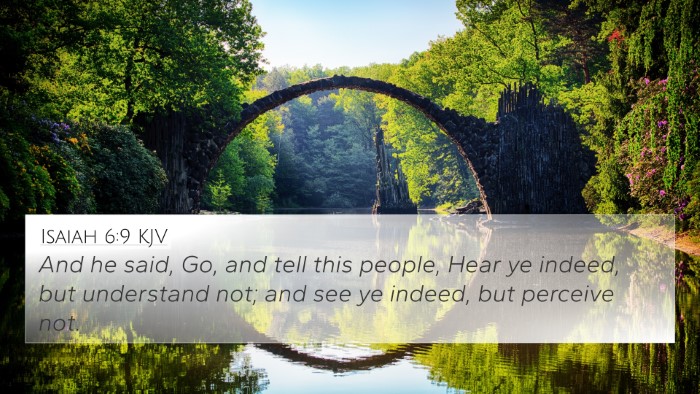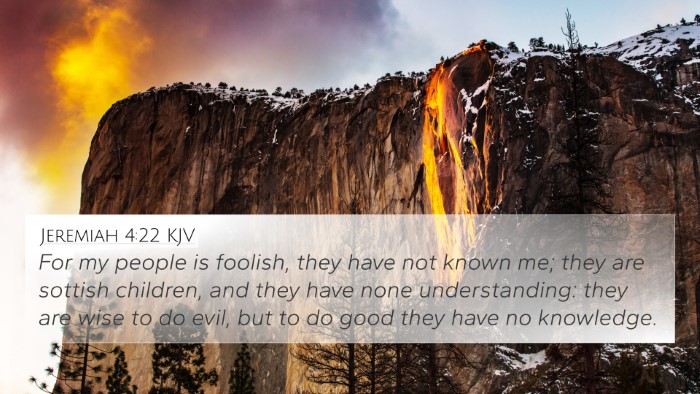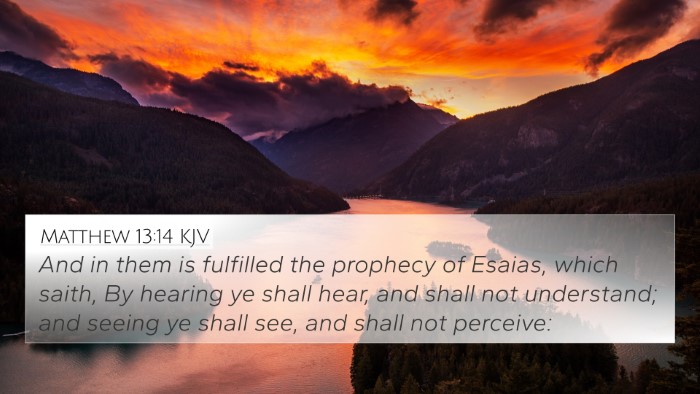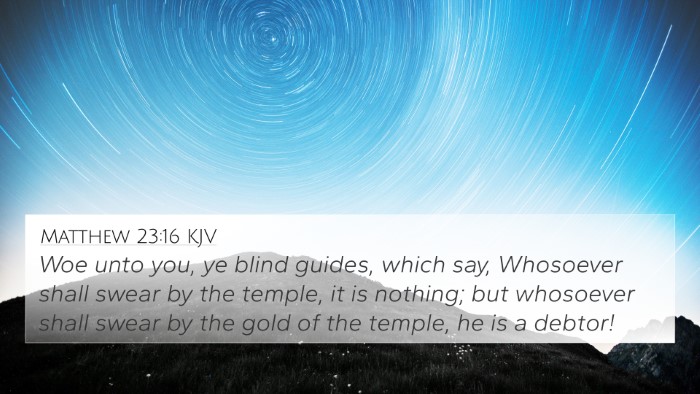Understanding Isaiah 42:19
Verse: Isaiah 42:19 - "Who is blind, but my servant? or deaf, as my messenger that I sent? who is blind as he that is perfect, and blind as the Lord's servant?"
This verse addresses the spiritual blindness and deafness of God's chosen servant, which in context primarily refers to Israel, but can also extend to the messianic interpretation of Jesus Christ. It conveys themes of failure to recognize God's guidance and revelation.
Commentary Insights
The combined insights from Matthew Henry, Albert Barnes, and Adam Clarke provide a rich understanding of Isaiah 42:19. Below are the summarized meanings derived from their commentaries:
Matthew Henry's Commentary
Matthew Henry emphasizes the tragic irony of Israel, God's servant. Although chosen and delivered from bondage, they exhibit spiritual insensitivity. Their blindness signifies a refusal to heed God's revelation, illustrating a broader theme of disobedience among those who should represent divine truth.
Albert Barnes' Commentary
Albert Barnes reflects on the rhetorical questions posed in this verse. He interprets it as God lamenting the lack of understanding among His people. The 'servant' represents both Israel and later, the Messiah, who would fulfill the purpose of revealing God to humanity amidst their spiritual dullness.
Adam Clarke's Commentary
Adam Clarke elaborates on the attributes of the servant being highlighted. He notes that despite being chosen for a special mission, the servant's blindness illustrates a failure to respond to God's commands. Clarke further connects this blindness to the larger narrative of Israel's history and their rejection of prophetic messages.
Bible Verse Cross-References
This verse connects deeply with various other scriptures that echo similar themes of servitude, blindness, and spiritual hearing. Below are 10 relevant cross-references:
- Isaiah 6:10: "Make the heart of this people fat, and make their ears heavy, and shut their eyes..." - Describes spiritual blindness imposed on Israel.
- Matthew 13:14-15: "And in them is fulfilled the prophecy of Isaiah, which saith, By hearing ye shall hear, and shall not understand..." - Reflects the continuation of Isaiah’s message into the New Testament.
- John 12:40: "He hath blinded their eyes, and hardened their heart..." - A direct quote from Isaiah illustrating the theme of unresponsiveness.
- Acts 28:26-27: Quoting Isaiah, Paul indicates the continued blindness of the Jewish people to the message of Christ.
- Romans 11:8: "...God hath given them the spirit of slumber, eyes that they should not see, and ears that they should not hear..." - Paul reflects on Israel’s spiritual condition.
- Isaiah 29:10: "For the Lord hath poured out upon you the spirit of deep sleep..." - Another reference to Israel's spiritual lethargy.
- 2 Corinthians 4:4: "In whom the god of this world hath blinded the minds of them which believe not..." - The theme of blindness as a spiritual condition.
- Revelation 3:17: "Because thou sayest, I am rich, and increased with goods... and knowest not that thou art wretched, and miserable, and poor, and blind, and naked." - A call to recognize spiritual poverty.
- Hebrews 5:11: "Of whom we have many things to say, and hard to be uttered, seeing ye are dull of hearing." - A note on spiritual deafness among the early church.
- Proverbs 29:18: "Where there is no vision, the people perish..." - A reminder of the importance of spiritual insight and leadership.
Connecting Themes
By analyzing Isaiah 42:19 alongside these verses, we see the recurring theme of spiritual blindness among God’s people. The consistent call for awareness and response to God's message resonates throughout scripture, bridging the Old and New Testament narratives.
Linking Bible Scriptures
The connection between Isaiah 42:19 and its cross-references offers a pathway for deeper understanding:
- Old Testament to New Testament Connections: The prophecy of Isaiah is reflected in the teachings of Jesus and the apostles, revealing a continuous dialogue about the need for spiritual awakening.
- Thematic Bible Verse Connections: Each cross-reference reflects a similar call to recognize God’s work and respond appropriately, showcasing how different parts of the Bible resonate with one another.
- Comparative Bible Verse Analysis: Analyzing how Israel’s failure as God’s servant aligns with the responsibilities and failures of the church today allows for rich theological insights.
Conclusion
The profound implications of Isaiah 42:19 challenge believers to reflect on their own spiritual awareness. By utilizing tools for Bible cross-referencing and understanding thematic connections between scriptures, one can deepen their faith and insight into God’s persistent call for attention and responsiveness.
Further Studies
For those looking to explore the connections and implications further, utilizing a Bible concordance, and engaging in a cross-reference Bible study can prove beneficial. Understanding the context and inter-Biblical dialogue invites more profound comprehension and application of God's Word to our lives.
